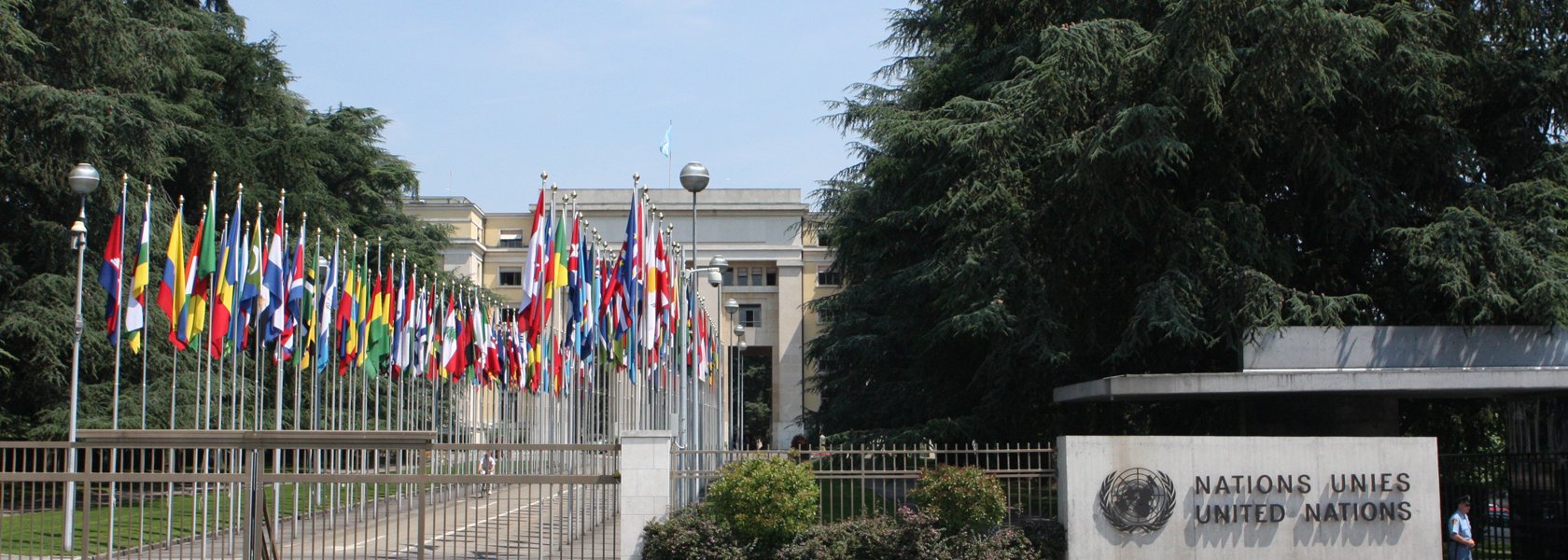Human Rights Council - 31st session
Briefer on the human rights situation in Iran
The UN Special Rapporteur on the situation of human rights in the Islamic Republic of Iran plays a crucial role in ensuring that the human rights situation in Iran is monitored, documented, reported upon and publically discussed. Since independent international human rights organisations, including FIDH, have not been permitted to send missions to Iran since 1979 and key Iranian human rights groups such as FIDH members LDDHI and DHRC [1] are banned from working and monitoring the situation of human rights in their own country, the work of the Special Rapporteur is essential to providing reliable and trustworthy information to States.
We call on Member and Observer States of the UN Human Rights Council to fully support the extension of the mandate of the Special Rapporteur on the situation of human rights in Iran, which remains of great concern, with the current government having done little or nothing to improve basic freedoms. Among the many key human rights concerns that the Special Rapporteur could help monitor and highlight are the following:
1) Prisoners of conscience and other victims of the brutal repression of freedoms of expression, assembly and association
Iran ranks 173rd out of 180 countries in the 2015 Reporters Without Borders press freedom index. Around 1,000 prisoners of conscience are believed to be behind bars in Iran today, including human rights defenders, journalists, independent trade unionists, women’s rights and political activists, all jailed for peacefully exercising their rights to freedom of expression, freedom of assembly or freedom of association. As of mid-January 2016, at least 38 journalists and bloggers were known to be in prison for exercising their right to free expression.
The UN Working Group on arbitrary detention declared several people in Iran as being arbitrarily detained. 13 of these individuals are still in prison:
• Messrs. Mir Hossein Mousavi and Mehdi Karoubi (two candidates in the disputed 2009 presidential elections) and Mr. Mousavi’s wife, Ms. Zahra Rahnavard;
• Messrs. Mohammad-Seddiq Kaboudvand [2] and Abdolfattah Soltani [3], (both human rights def-enders);
• Mr. Khosro Kordpour (journalist), and
• Seven leaders of the Bahá’í community who were sentenced to 20 years in prison in 2010. [4]
2) Persecution of religious and ethnic minorities
Religious and ethnic minorities in Iran continue to face extensive discrimination in law and in prac-tice. Scores of followers of various minority religions or beliefs are currently in prison on politically-motivated charges or for “crimes” related to the practice of their religion. At the end of September 2015, they included 74 followers of the Bahá’í faith, more than 90 Christians, at least five Dervish (Sufi) Muslims, in addition to an unknown number of Sunni Muslims.
The death penalty is used disproportionately against members of ethnic and religious minorities, based on vaguely defined crimes: at least 11 members of the Kurdish minority and one Baloch prisoner were executed on political charges in 2015. More than 30 Sunni Muslims and around 20 Kurds, and an unknown number people from the of Baloch minority are currently on death row for politically-motivated charges.
3) Denial of women’s rights
In 2014, Iran ranked 135th out of the 142 countries assessed by the World Economic Forum for wo-men’s political empowerment. Provisions of the Constitution, the Civil Code and the Islamic Penal Code discriminate against women regarding marriage, divorce, custody of children, inheritance, and nationality. Additional legislative plans under way would effectively reduce women’s participation in the labor market. Women are also barred from attending certain university courses and even entering stadiums to watch men’s sports competitions.
4) Rise in the use of the death penalty, including executions which explicitly violate international law
The year 2014 witnessed a high number of executions in Iran: at least 743, including 53 carried out in public. In 2015, around 1,000 people were executed, a record since the year 1989. About three quarters of those executed had been charged with drug-related crimes, a large number of whom were poor and marginalised individuals and members of ethnic minorities, in particular the Kurds and the Baloch and Afghan migrants.
A large number of crimes are punishable by death in Iran, including adultery, consensual sex between men, repeated consumption of alcohol, theft, cursing the Prophets, certain economic crimes, certain religious and political offences, and drug trafficking. This is a direct violation of international human rights standards that set out that the death penalty, if imposed, should be restricted to “the most serious crimes”.
The execution of minors also continues to take place in Iran. Around 160 individuals who were under the age of 18 at the time of the alleged crime are reported to be on death row. Up to 13 juvenile offenders were reportedly executed in 2014, and at least four were executed in 2015, while the nuclear negotiations were being concluded. One person executed in January 2016 is also thought to have been a minor at the time of the alleged crime.

